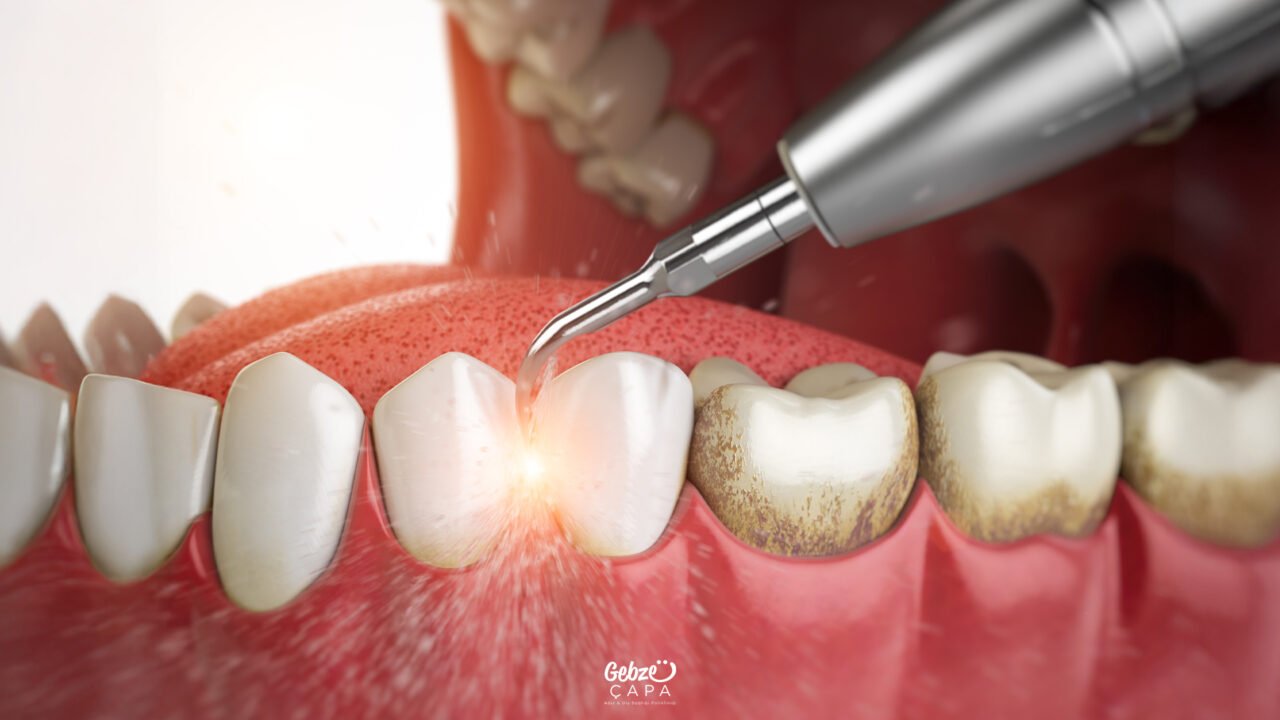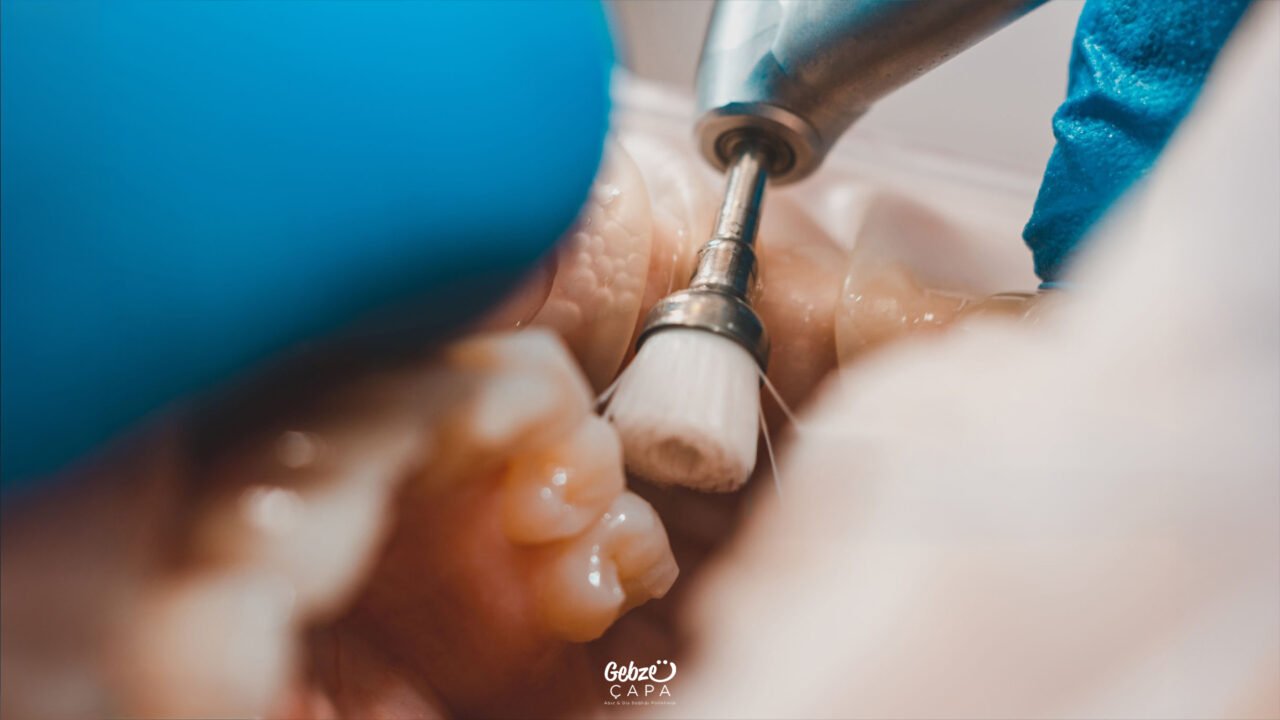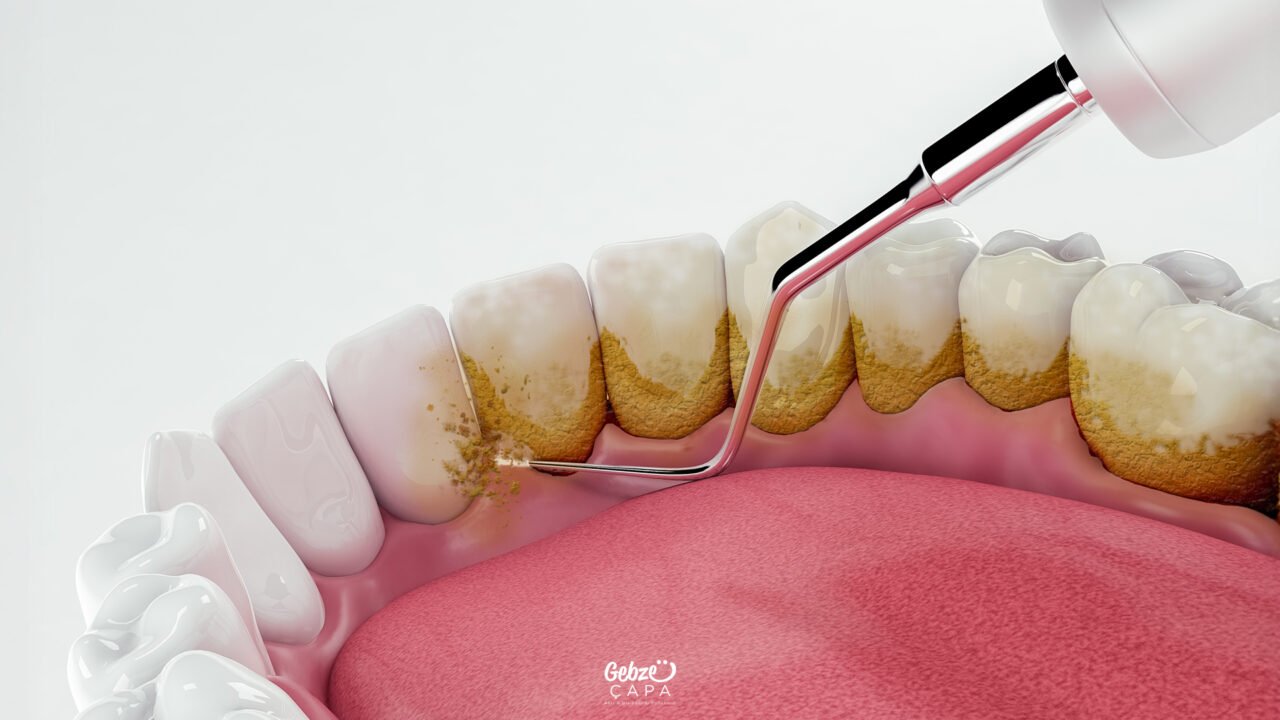What is Dental Tartar Cleaning?
Our dental health is of great importance not only for a beautiful smile, but also for our general health. Our teeth break down the food we eat, initiating the first step of digestion, and a proper chewing process is vital for both protecting our stomach health and adequate nutrition. However, having healthy teeth is not limited to regular brushing and flossing.
Over time, plaque that accumulates and hardens on the surface of our teeth, or tartar, threatens our oral health and can lead to various problems. So, what exactly is tartar, how does it form, and why should it be cleaned? Knowing the answers to these questions is very important in order to protect our dental health and avoid experiencing bigger problems in the coming years.
What is Dental Calculus?
Dental Calculus is a yellowish, brownish or grayish structure formed by the hardening of bacterial plaques that accumulate on the surface of our teeth over time, combining with minerals in the mouth. These deposits, which seem innocent at first glance, actually pose a serious threat to our oral health. Minerals such as calcium and phosphate, naturally found in our saliva, penetrate into the bacterial plaques that stick to the surface of our teeth after eating. This process occurs more quickly, especially in areas where teeth cannot be fully cleaned with a brush or dental floss, namely at the gum line and between teeth.
These plaques, which harden over time, turn into dental plaque and become impossible to remove with an ordinary toothbrush or dental floss. Dental plaques not only create an aesthetic problem; they also lead to serious oral health problems that can lead to gum inflammation, gum recession and, in more advanced stages, tooth loss. Due to their rough structure, dental plaques also pave the way for the formation of new plaques; In other words, unless tartar is cleaned, your teeth will get dirty faster and your oral health will deteriorate.

Why Does Tartar Form?
The main reason for tartar formation is inadequate oral hygiene. Not brushing our teeth regularly and correctly, neglecting to use dental floss, and skipping tongue cleaning pave the way for tartar accumulation. Because bacterial plaques that cling to the surface of the teeth harden over time with the minerals in our saliva and turn into tartar. These plaques, which especially cling to the gum line and between the teeth, accumulate more easily when proper cleaning habits are not followed.
However, not only cleaning habits, but also our lifestyle and some physiological factors can trigger tartar formation. For example; smoking and using tobacco products increases plaque accumulation on the tooth surfaces and causes these areas to harden more easily. Similarly, excessive consumption of tea, coffee, or dark-colored beverages darkens the color of tartar and increases the rate of accumulation.
In some people, genetic predisposition comes into play. Genetically, the composition of saliva can cause some people to form tartar more quickly. In people with dry mouth, the decrease in saliva secretion makes it difficult to clean the teeth naturally and paves the way for tartar formation.
Other factors that affect tartar formation include:
- Frequent consumption of sugary and acidic foods: Such foods contribute to the proliferation of bacteria in the mouth and the easier formation of plaque.
- Having crooked teeth: Narrow and hard-to-reach areas between the teeth cannot be effectively cleaned with a toothbrush and dental floss. Plaque accumulates more easily in these areas and turns into tartar over time.
- Gum disease: Inflammation and diseases in the gums can accelerate tartar formation. Saliva flow and natural cleaning mechanisms are weakened in inflamed areas.

Why Is Dental Tartar Important
Dental tartar cleaning is of critical importance not only for preserving the aesthetic appearance of teeth, but also for maintaining oral and dental health in the long term. Dental tartar accumulation leads to serious problems that can progress to inflammation in the gums, gum recession and ultimately tooth loss. This hard layer that settles at the gum line and between the teeth creates an ideal breeding ground for bacteria and causes the production of compounds that cause bad breath (halitosis).
In addition, the yellowish and brownish stains that dental tartar creates on the surface of the teeth can lead not only to an unhealthy oral appearance, but also to a loss of self-confidence in social life. When dental tartar cleaning is not done regularly, these hard deposits progress under the gums over time, affecting the roots of the teeth, causing the teeth to become loose and eventually leading to tooth loss. For all these reasons, dental tartar cleaning is not just a maintenance routine, but a vital necessity that ensures oral health and the longevity of the teeth.
How is tartar cleaning done?
Tartar cleaning is a procedure that can only be performed by dentists and requires professional care. This procedure involves cleaning hardened tartar and bacterial plaque that settles on the teeth and cannot be removed by brushing, using special tools. Tartar cleaning, technically known as descaling, is performed using ultrasonic devices in particular. These devices remove tartar with the help of a vibrating tip, while simultaneously spraying water to keep the mouth cool and clean the accumulated residue. If necessary, your dentist also performs a detailed cleaning with hand tools and completely cleans all surfaces of the teeth.
Most people do not feel any pain during tartar cleaning; however, in people with sensitive gums or if tartar has accumulated too much, a slight discomfort or sensitivity may be felt during the procedure. This is completely temporary and a feeling of relief is usually felt when the cleaning is completed. After tartar cleaning, the surfaces of the teeth are smoothed and covered with a special polish. This polish makes the teeth look brighter and cleaner, and delays the formation of new plaque and tartar.
Tartar cleaning is not only a “cosmetic procedure” for maintaining oral health, but also a critical step in preventing gum disease. It is generally recommended to have it done regularly every 6 months under a dentist’s control. However, for some people, especially those who are prone to tartar formation, this period may be shorter and your dentist may recommend cleaning every 3-4 months.

What Can Be Done to Prevent Tartar Formation?
Although it is not possible to completely prevent tartar formation, the risk can be minimized with the following recommendations:
- Brushing teeth at least twice a day, using the right technique
- Cleaning plaque between teeth using dental floss
- Going to the dentist regularly and getting professional cleanings
- Staying away from sugary and acidic foods as much as possible
- Avoiding cigarettes and tobacco products
- Drinking plenty of water and paying attention to oral hygiene


